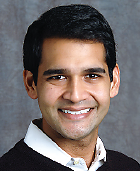RFM Trustee Welcomes Trainees to APA and Invites Participation

Welcome to the 2015-2016 academic year! I am this year’s resident-fellow member trustee of APA and a chief resident at Columbia University Medical Center. As you look forward to the year, I thought I would give advice to trainees by year, highlighting opportunities at APA as well. I wish you all a great 2015-2016 academic year!
All Trainees
APA is here to help you! Visit the RFM website for a variety of fellowship, research, and leadership opportunities. In addition, please contribute to the Residents’ Forum. This column is written by trainees for trainees, and guidelines for submissions are on the website. If you have any questions or ideas about how APA can better serve you, feel free to reach out to me at any time at [email protected].
PGY-1s
This is the year to learn how to take care of yourself as you take care of others. For most, this will be the most time intensive and demanding year of your medical training. Your workload will increase dramatically. Although it is normal to feel inadequate as you learn to take primary responsibility for patients, your knowledge and skills will also increase dramatically as you transform from medical graduate to physician. During this challenging time, focus on the basics: preserve sleep and maintain exercise, and try to find time to socialize with loved ones and friends. When you have lighter rotations, take stock of yourself and rest.
PGY-2s
Welcome to your first year of full-time psychiatry! It’s normal to feel ambivalent, especially at the start of the year. It is exciting to finally join your department as a full-time psychiatrist, but you will inevitably discover aspects of the work you do not like, whether it be certain patient populations or practice settings. Find mentors, from senior residents to junior faculty to the most senior faculty. They will help guide you along as you look for the aspects of this profession that you are most passionate about. Simply email people who may serve as a role model and ask whether they have availability to meet. Many junior residents do not realize that people would love to provide mentorship, as most people in academic psychiatry relish interactions in which they can help others grow. This is also a year to begin considering the many APA leadership opportunities that are available to you.
PGY-3s
Outpatient psychiatry provides more autonomy than you have had in the last two years. Being more in the driver’s seat can be both exciting and anxiety provoking. Most of your year will be outpatient, which generally means your schedules will lighten or at least be more under your control. Use this time to begin to hone in on your professional areas of interest, whether it be through research, electives, writing, or other endeavors. Say “yes” to opportunities that come up and are related to your interests. These PGY-3 experiences will help you decide how you would like to spend your PGY-4 year and whether you are interested in applying for a fellowship.
PGY-4s
We are almost done! I am in your shoes, so my best advice is to enjoy the year. Focus on the electives and projects that are interesting to you. Say “no” when you must and focus on consolidating the relationships you have developed over the last three years with colleagues and supervisors alike. As we graduate, these people will be the foundation of our professional network and the peers to whom we turn for support and supervision in our careers ahead.
Fellows
As you dive into the intricacies of your subspecialty training, remember how it relates to general psychiatry and to general medicine. Your expertise will be invaluable to your psychiatry and medical colleagues as you move forward in your career. Try to keep an open door and reach out to residents in your department, as they can benefit tremendously from your advice and mentorship. ■
If you are interested in writing an article for the Residents’ Forum or would like to discuss topic ideas, please contact me at [email protected].



